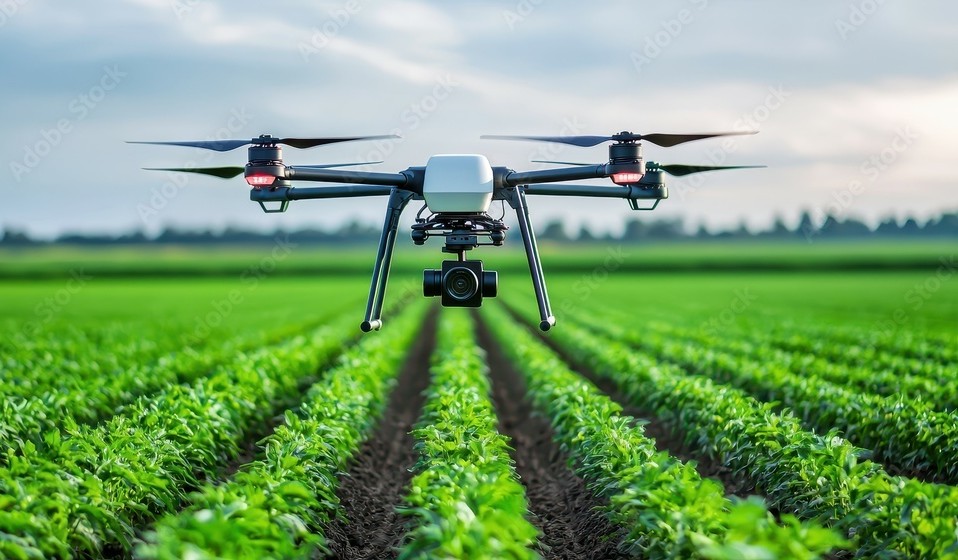Azolafam Ltd.: 18th May, 2025 { https://www.azolafam.com/ }

In today's rapidly evolving agricultural landscape, farmers are expected to keep up with everything from climate-smart practices to digital innovations and market fluctuations. But many smallholder farmers still struggle with limited access to knowledge, training, and support. That’s where agricultural extension services come in.
Extension services are the vital link between scientific research and practical farming. They equip farmers with the knowledge, skills, and tools needed to improve productivity, manage risks, and build sustainable livelihoods.
📚 What Are Agricultural Extension Services?
Agricultural extension services refer to the educational systems and outreach programs that transfer agricultural knowledge, technology, and best practices to farmers. These services are delivered by government agencies, NGOs, private sector actors, universities, and farmer cooperatives.
Extension agents—sometimes called field officers or agricultural advisors—play a crucial role in providing farmers with hands-on training, advice, demonstrations, and problem-solving support.

🌱 Why Extension Services Are So Important
1. Improved Farm Productivity
Extension officers teach farmers how to apply improved seed varieties, modern techniques, pest control measures, and efficient irrigation systems. This often leads to higher yields and better quality produce.
2. Technology Adoption
New technologies, like precision farming tools, mobile apps, and mechanized equipment, are more effective when farmers know how to use them. Extension services ensure these innovations don’t sit idle.
3. Climate Resilience
Farmers receive guidance on climate-smart agriculture, including water harvesting, crop rotation, and sustainable soil management—key practices in the face of changing weather patterns.
4. Market Access and Agribusiness Skills
Extension support doesn’t stop at production. Farmers are trained on post-harvest handling, packaging, value addition, record keeping, and marketing strategies to increase profitability.
5. Food Security and Nutrition
By promoting best practices in crop diversification, livestock rearing, and home gardening, extension services help families achieve better food security and balanced diets.
6. Empowerment of Rural Communities
Extension programs often include youth and women-focused training. This not only improves skills but boosts confidence and decision-making power within households and communities.

🧠 Examples of Agricultural Extension Services in Action
- Farmer Field Schools: Practical, hands-on sessions where farmers learn by doing, often organized around demonstration plots.
- Radio & Mobile Advisory: Extension tips delivered via local radio, SMS, or mobile apps (like the Azolafam Mobile App).
- Group Training & Workshops: Organized sessions that bring farmers together to learn from experts and each other.
- One-on-One Farm Visits: Personalized visits where extension agents help solve specific on-farm problems.

🔍 Challenges Facing Extension Services
While the benefits are clear, many agricultural extension systems face challenges:
- Inadequate funding and staffing
- Outdated training materials
- Poor access to remote or conflict-affected areas
- Limited use of digital tools
- Gender and youth exclusion
Addressing these gaps requires coordinated efforts from governments, development partners, and private investors.
🛠️ How to Strengthen Extension Services
- Leverage Digital Platforms: Mobile apps, online videos, and chatbots can expand reach and reduce costs.
- Public-Private Partnerships: Collaboration between governments and agribusinesses can boost training and innovation.
- Train More Extension Agents: Investing in the recruitment and continuous training of agents ensures quality service delivery.
- Focus on Inclusion: Special efforts must be made to reach women, youth, and marginalized groups.
- Promote Farmer-Led Extension: Experienced farmers can be trained to serve as peer educators and local resource persons.
🌍 Final Thoughts
Agricultural extension services are not just a “nice-to-have”—they are the backbone of modern, productive, and inclusive agriculture. Without them, innovations don’t spread, productivity stalls, and farmers are left behind.
Empowering farmers with knowledge is the most sustainable investment we can make. Whether it's helping a farmer fight pests, adopt a mobile app, or find better markets—extension services are the bridge between research, resilience, and results.
Are you benefiting from extension services in your area? Or are you working to support farmers through training and outreach? Let us know your experiences in the comments below. 🌱💬
Would you like this adapted for a flyer, social media content, or training manual version?
